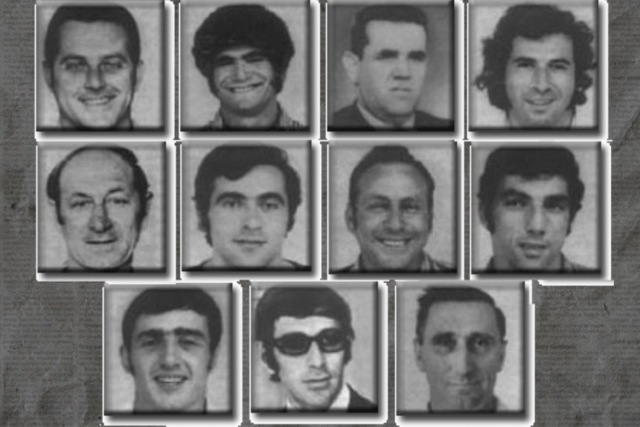The 1972 Munich Olympics, designed to celebrate the unifying spirit of sports, will forever be remembered for a devastating act of terrorism that shocked the world. On September 5th, 1972, a Palestinian militant group known as Black September infiltrated the Olympic Village, taking eleven members of the Israeli Olympic team hostage. The 23-hour ordeal ended in bloodshed, shaking the global community and leaving an indelible mark on modern history.
The incident began in the early morning when the Palestinian terrorists, armed with automatic weapons, infiltrated the Israeli team's residence within the Olympic Village. Two Israeli athletes were killed during the initial break-in. The assailants then took nine others hostage, issuing demands for the release of 200 Palestinian prisoners held in Israeli jails. This audacious act led to hours of fraught negotiations between the terrorists, German authorities, and various intermediaries.
September 5, 1972, is known as the darkest day in Olympic history: the date of the Munich Massacre. During the 1972 Summer Olympics in Munich, eleven Israeli Olympic team members were taken hostage by a Palestinian terrorist group and eventually killed, along with a German police… pic.twitter.com/6ijrNRpSea
— Humans of Judaism (@HumansOfJudaism) September 4, 2023
The situation escalated further when the West German military acquiesced to the terrorists' logistical demands. Three helicopters were supplied to transport the terrorists and their Israeli hostages to Fürstenfeldbruck military airport. A Boeing 707, furnished by Lufthansa German Airlines, was prepared to fly all the involved parties to Cairo, Egypt. This was ostensibly part of the negotiation strategy, but it also set the stage for a deadly showdown.
As the two lead terrorists walked approximately 170 yards from the helicopters to the waiting airplane, German sharpshooters took positions in the darkness, preparing to intervene. When the terrorists began to retrace their steps to collect their comrades and hostages, chaos erupted. The German marksmen opened fire, leading to an intense exchange of gunfire with the terrorists. The exact details of how the hostages were killed remain unclear, but it is believed that one of the terrorists hurled a grenade into a helicopter where some or all the hostages were bound.
Massacre at the Munich Olympics
— TodayRevisited (@TodayRevisited) September 5, 2023
On September 5, 1972, a tragic event unfolded during the Summer Olympics in Munich, Germany, that shocked the world. The Massacre at the Munich Olympics involved a terrorist attack on the Israeli Olympic team by a Palestinian group known as Black… pic.twitter.com/uSquIgEf0c
In the ensuing carnage, all eleven Israeli hostages were killed, as were four of the terrorists. A German police officer also lost his life, and a helicopter pilot was critically injured. This devastating turn of events led to a temporary suspension of the Olympic Games and sparked a heated debate within the International Olympic Committee (IOC). Willi Daume, the president of the West German Organizing Committee, announced plans to convene an emergency meeting of the IOC to decide the fate of the Games. Despite the bloodshed, Avery Brundage, the then-chairman of the IOC, made the controversial statement, "The Games must go on." The competition resumed just 34 hours later, a decision that remains a subject of ethical scrutiny to this day.
Insights into how the terrorists were able to plan and execute their attack with such precision later came from Dr. Bruno Merk, Bavaria's Interior Minister at the time. He revealed that at least one of the terrorists had been an accredited employee in the Olympic Village. There was reason to believe that his accomplices may have also secured similar access. Initial plans to free the hostages at the Olympic Village were abandoned, according to Dr. Merk, because such an operation might have jeopardized athletes from other nations residing nearby.
Today marks 51 years since 11 members of the Israeli Olympic team were taken hostage and eventually murdered by the Palestinian terrorist group "Black September" at the 1972 Olympic Games in Munich.
— Christian Friends of Israel (@CFIJerusalem) September 5, 2023
This heinous attack became known as the Munich Massacre.
We remember. 📷 pic.twitter.com/ubN9nhhw89
The 1972 Munich Olympics serves as a haunting reminder that even the most well-intentioned international platforms can become stages for horrifying acts of violence. The incident casts a long shadow, shaping security protocols at subsequent Olympic Games and leaving a tragic legacy in the hearts and minds of people worldwide, but especially within the Israeli community, which mourns its lost athletes to this day.


